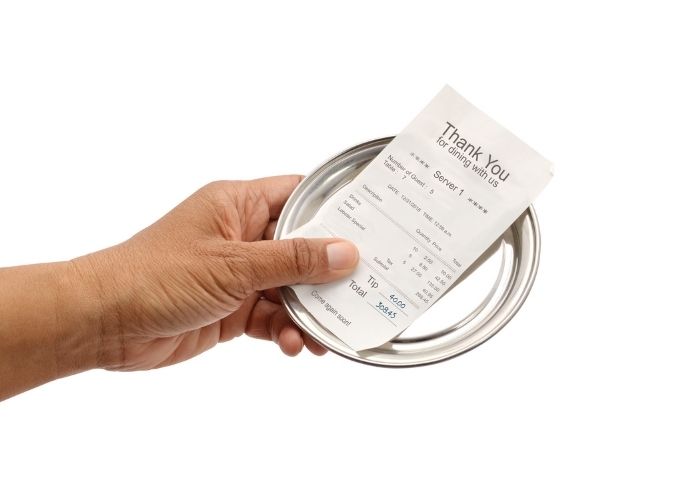Sometimes a bill in a bar or restaurant suddenly turns out to be more expensive than you had calculated in advance. In that case, for example, the VAT (IVA) is not included in the price on the card, or a service surcharge is charged for consumption on the terrace. But is that really possible?
The Spanish consumer organisation OCU has published an overview on its website of services and products that catering establishments are not allowed to put on the bill. Or, if so, they may only do so if they have clearly informed their customers about this in advance.
What is important to know in the first place is that catering establishments are free to determine their prices. Consequently, a product or dish at a restaurant can be more expensive than the same item on another occasion. That is allowed, but the price must always be clearly stated for guests on a price list or menu.
No need to pay for this
The VAT, or IVA in Spanish, should never be a surprise. Under Spanish law, this percentage of tax must be included in the price of the product or dish. Even when ‘IVA no incluido’ is explicitly stated on the price list, it is not allowed to calculate the IVA afterwards. The price stated on the menu must therefore always be the final price.
Catering establishments may not charge any further reservation costs or service costs. What is allowed, is that a part can already be charged at the time of booking. But this must be deducted from the total amount on the account later. Furthermore, it is also not allowed to charge an extra amount per cover. However, if the dinner is cancelled in advance, for whatever reason, the amount already paid must be refunded.
This is allowed with a clear mention
And what about the service on the terrace? Eating and drinking on the terrace is often more expensive than if you were to take a seat inside. An additional amount for patio service is allowed. However, this is provided the customer has been clearly informed about this in advance and also about the amount. This terrace service must also always be clearly stated on the invoice.
The standard sandwich served is rarely free. Legally, an amount may be charged, but this must be clearly stated on the menu or price list. It must also be specified whether this is calculated per sandwich or per person. In the first case, each sandwich must be paid separately, in the second, not.
A pitcher of tap water can also provide the necessary surprises afterwards. Catering establishments may charge for tap water, however, this must also be clearly stated on the price list or card. The same applies to ice cubes with soft drinks or iced coffee. Legally, these may be charged, if this is also clearly stated in advance. Whether asking for money for tap water and ice cubes promotes customer satisfaction is very much the question, so it is allowed.
Clarity about dishes outside the menu
If a restaurant also serves dishes outside the menu, the price must always be stated in advance, even if this dish is only communicated verbally. If this was not the case and the price of the dish in question turned out to be excessive, you do not have to pay this and the amount can be paid for a comparable product or dish on the card.
Finally, the OCU mentions the procedure with a ‘daily price’ or ‘price per weight’, which often appears on the menu for the more exclusive types of fish and meat. Before ordering, customers must also be informed about the approximate price of the dish, with an estimate of the weight and the associated price.
Related post: Can the Spanish government intervene in the ‘menu del día’?


